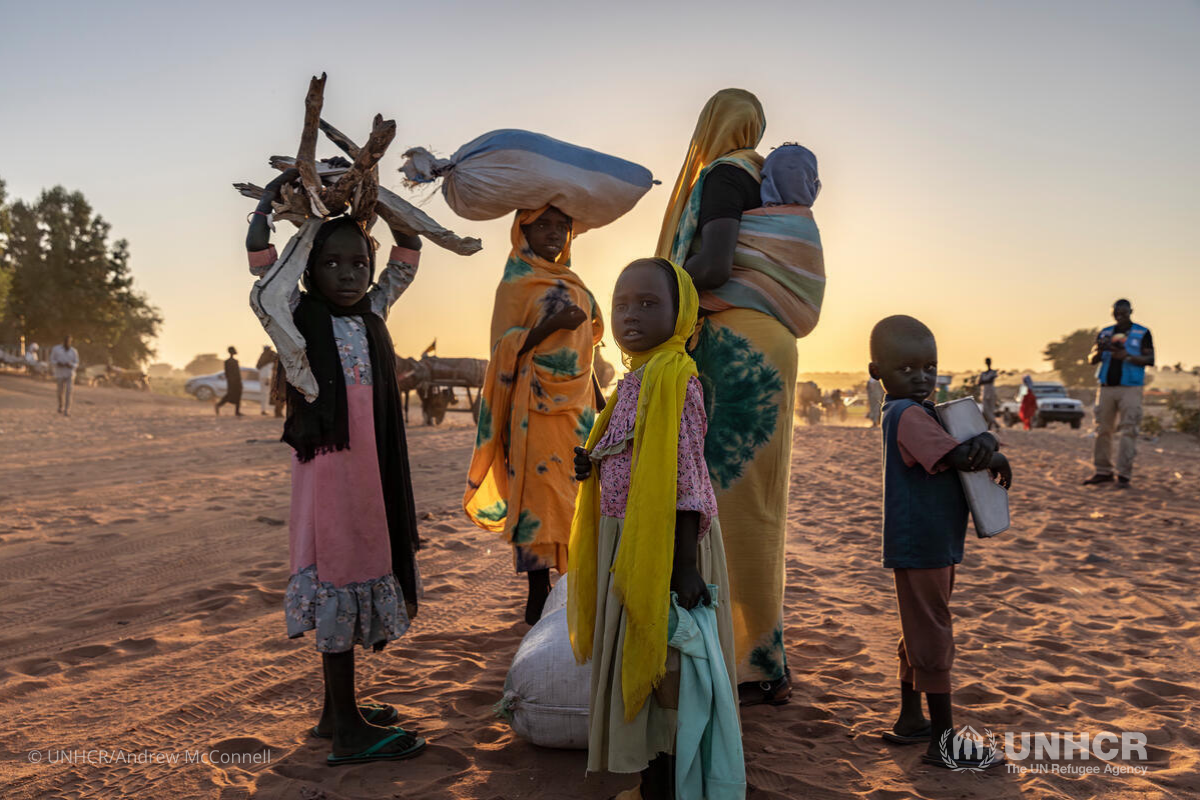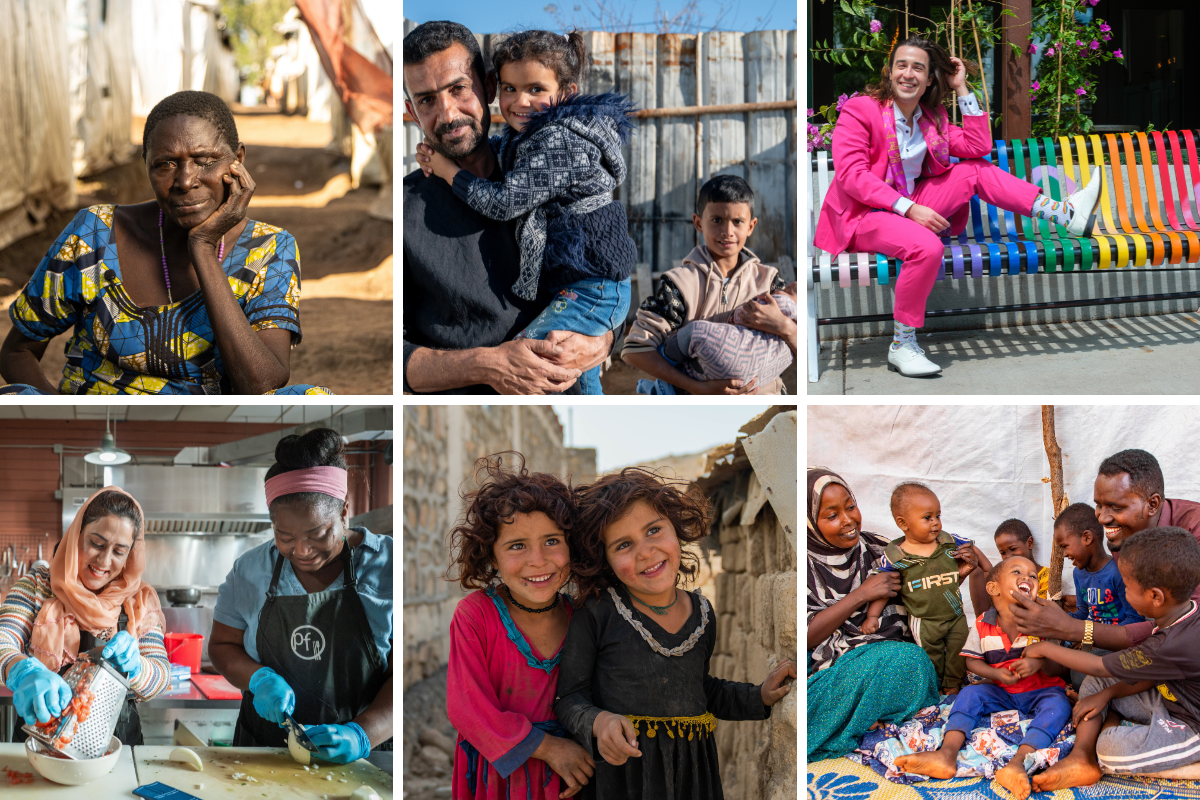Returning Syrians filled with hope despite the challenges ahead
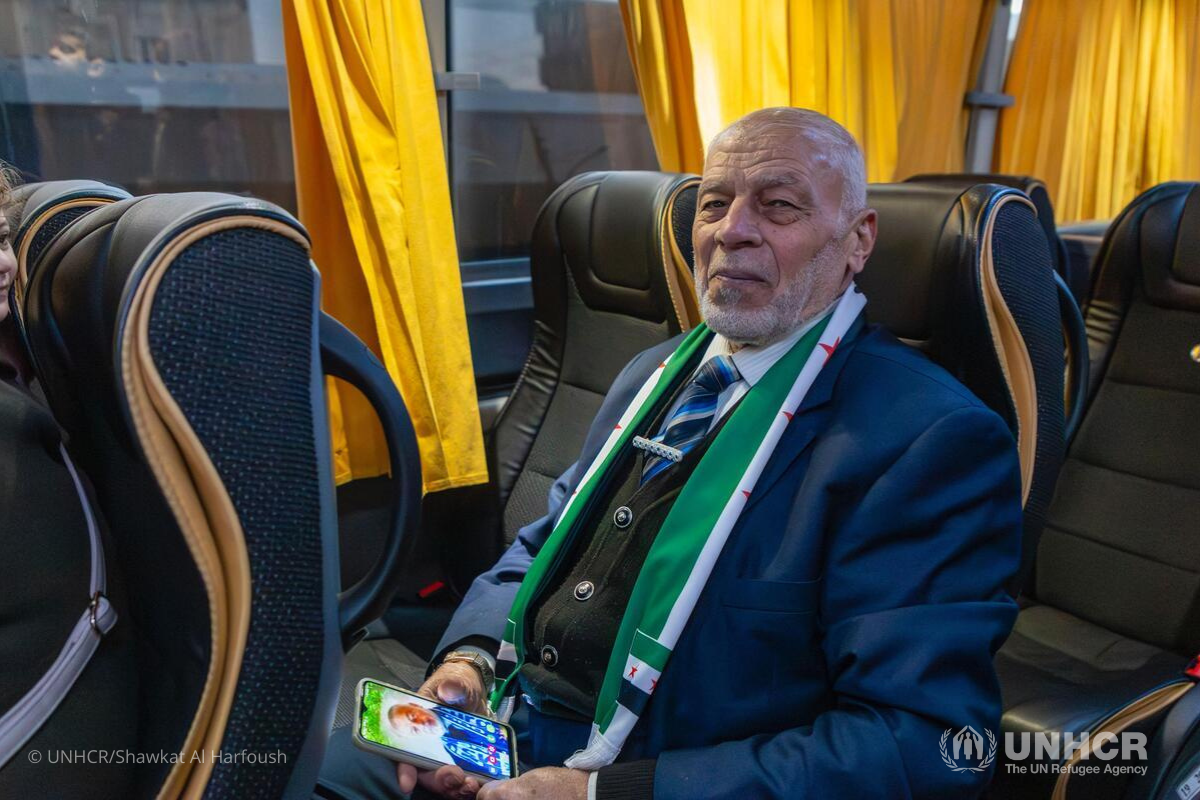
In the 13 years since Hassan Mohammad Alhassan fled the conflict in Syria with his family to seek safety in neighboring Jordan, there were times when the 80-year-old patriarch must have wondered if he would ever set foot in his homeland again.
But shortly after dawn on January 30, as he boarded a bus in the Jordanian capital, Amman, bound for Homs, the years of uncertainty fell away, and he looked forward to his long-awaited return with a broad smile.
“We have lived in Jordan as if it were our own country. Thirteen years have passed, and we have never had any complaints,” Alhassan said. “Now, as we return to our home country, it feels like being reborn. It’s as if we’re starting a new life.”
Dressed formally for the occasion in a suit and tie, with a scarf bearing Syria’s new three-starred flag draped around his shoulders, he explained his decision to return despite the challenges that lie ahead.
“Why? Because we will finally experience freedom and reconnect with our lives. I haven’t seen my sisters, brother or daughters for several years. That was all due to the previous political situation,” Alhassan said. “My house in Syria is destroyed; it needs repairs, and it will be costly. When I go back, I will check what remains of it and determine exactly what needs to be done.”
Alhassan and his family were among a group of more than 90 Syrian refugees traveling that day on three buses from Amman heading to Damascus, Homs and Daraa. The buses were organized by UNHCR, the UN Refugee Agency, as part of a free transportation service provided since January 20 for registered Syrian refugees wishing to go home.
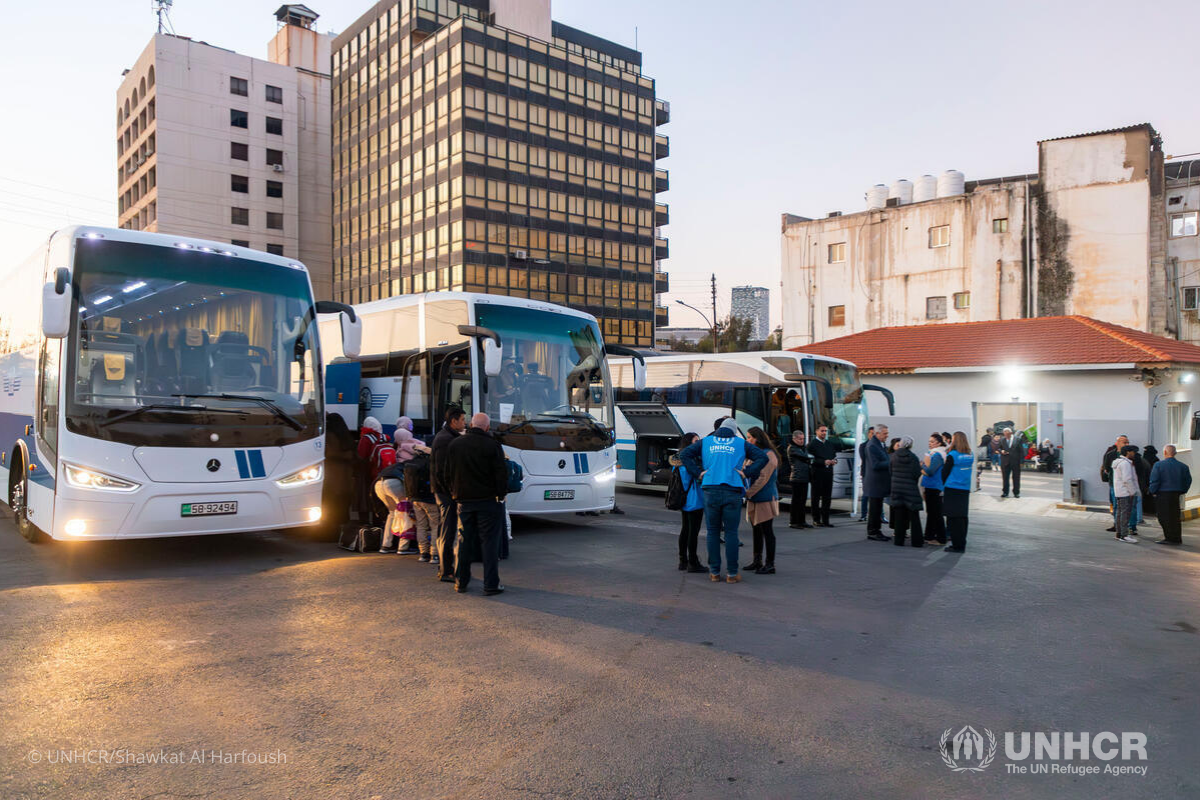
They will join more than 235,000 Syrians who have returned to the country since the fall of former President Bashar al-Assad on December 8, 2024. UNHCR is working with governments in the main refugee-hosting countries – including Jordan, Türkiye and Lebanon – to assist in the voluntary repatriation of Syrians who choose to return.
While more of the 6 million Syrian refugees still living in the region and beyond are expected to return home in the coming months, many are still assessing the political and security developments before making a decision. UNHCR has stressed that any returns must be informed and voluntary and that support for refugees and the countries hosting them should be maintained in the meantime.
Recovery for Syria
After wishing Alhassan and the others well on their journey home, UN High Commissioner for Refugees Filippo Grandi – who was in Jordan on the last leg of a week-long visit that included Syria, Lebanon and Türkiye – described witnessing refugees returning home as “the most moving moment for any UNHCR worker.”
“I feel so emotional to talk to these people and hear their stories, hear their hopes and also their apprehension for what awaits them in a country on its knees after so many years of war and conflict,” he said.
“These people need support. UNHCR is helping them travel back to Syria in cooperation with the Government of Jordan, which has been so generous all these years, and we will also be helping them on the Syria side,” Grandi added. “They will need immediate assistance, but more than anything else, Syria needs a recovery program – needs services, needs infrastructure, needs houses, needs jobs for the people who return and for all the people of Syria in this new era.”
Several days earlier, in Aleppo – which suffered widespread destruction during the height of the conflict – Grandi heard firsthand about the most pressing challenges facing Syrians who had recently returned from Türkiye.
Issa, now aged 27, was 18 when he fled Syria to Türkiye to escape military conscription. In February 2023, the building where he and his family lived in the southern city of Kahramanmaraş collapsed during the earthquakes that devastated large parts of southern Turkiye and northern Syria. He returned to Aleppo with his pregnant wife and their three young children soon after the fall of the former regime.
“We have experienced so much,” Issa said. “I was in Aleppo, and it fell into destruction. I went to Türkiye and the earthquake happened, and it was devastating. Now I’m back here, and it is still destroyed.”
Urgent needs
The family are currently staying with relatives in the city while they try to find their feet. Issa – who worked as a coppersmith to support himself in Turkiye – stressed the need to reestablish basic infrastructure and services to enable more refugees to return and aid the reconstruction effort.
“I came back here; there is no electricity, no water, the buildings are damaged … no internet, no job opportunities. If there is nothing here, how are we going to rebuild?” he asked. “If these are back, many people will return. We need help with these services [because] if the Syrian people don’t come back, Syria won’t be rebuilt.”
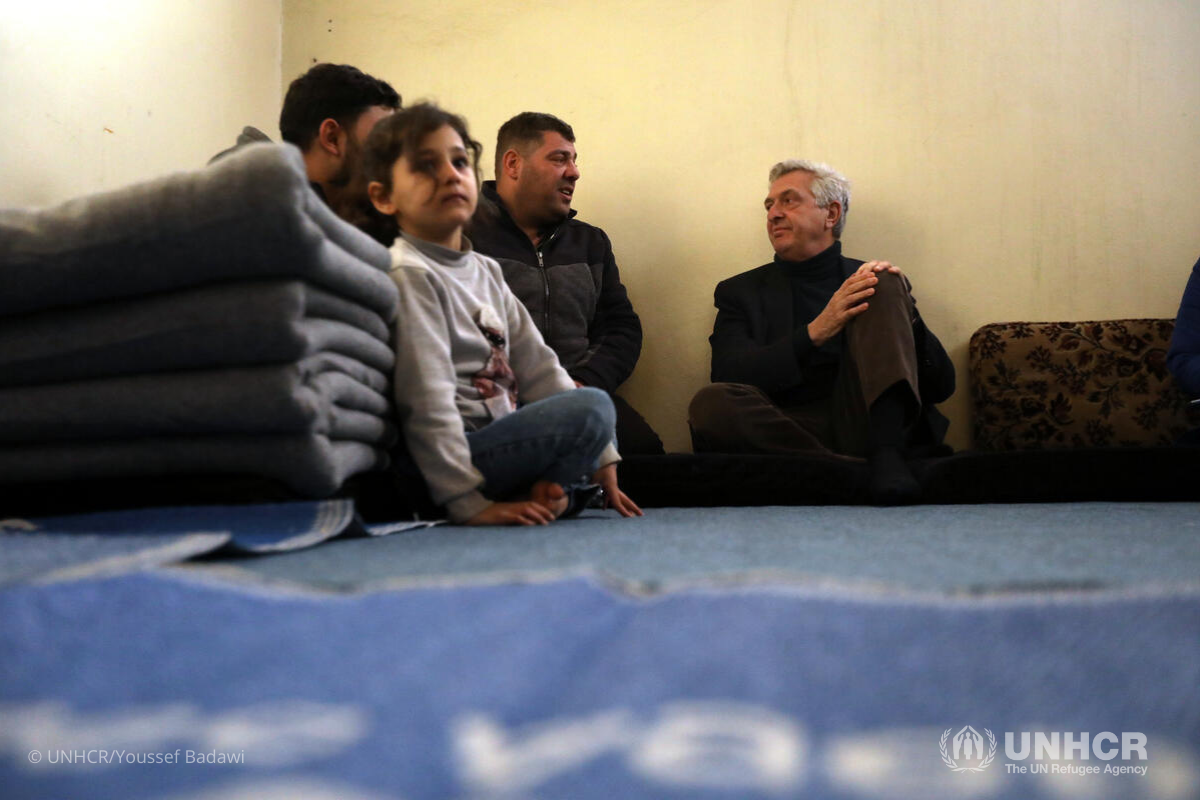
Grandi stressed that UNHCR will continue working to help returning refugees as well as those displaced inside the country during the conflict who are now returning home – as 600,000 have already done since December – and other Syrians in need. The agency and its partners provide basic household items, deliver essential winter supplies, offer psychological counseling, carry out repairs to damaged homes, replace lost identity documents and disburse emergency cash assistance.
“We must not forget that the humanitarian crisis has not ended, and people continue to have enormous needs,” he said. “There is a political transition that opens up new opportunities, but we must continue to support these people with humanitarian assistance and beyond … so that their return can be lasting.”
Originally posted by UNHCR, the UN Refugee Agency

